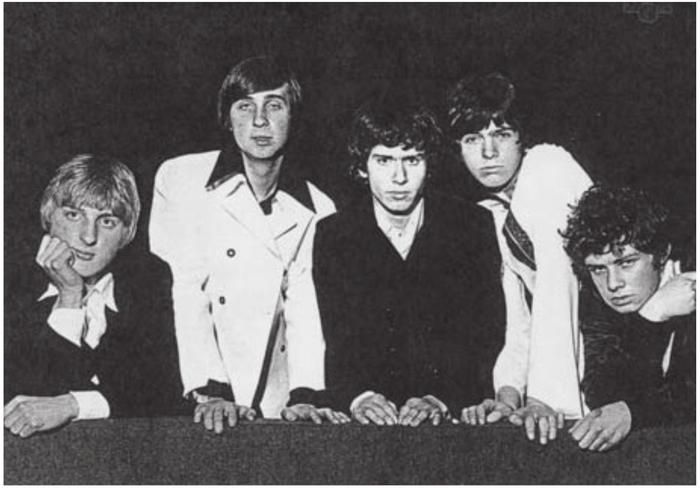The Almond Blossom Appreciation Society (34 page)
Read The Almond Blossom Appreciation Society Online
Authors: Chris Stewart

I chose the mountains, and have lived in them very contentedly for twenty years, but I do have a yearning for the sea, which comes from my early thirties when I had a brief lifechanging encounter. It all started when I talked my way into a job skippering a yacht in Greece – without knowing how to sail. So I had to learn, and one thing led to another and I ended up crewing across the North Atlantic. It marked me for life. Writing about it was fun. I didn’t have any notes, because back in those days I didn’t have the remotest intention of becoming a writer, but many of the experiences I had were so vivid that they all came flooding back. It was a great pleasure, too, thinking myself back to the sea, reliving it in a sense.
The trouble is that it has opened that old wound, and I am now to be found at any hour of the day or night lost in a reverie, staring at pictures of wooden sailing boats and wondering if I ever might own one.
My plan, a new gauntlet that I am throwing down for myself, is to sail around the world before I finally slip away. Not with all the ballyhoo and fol de rol of round-the-world racing and record-breaking. I’m not that sort. For me it’s a matter of ambling slowly around it and wondering at all the terrible, immeasurable beauty of it. Ana indulges these crazed notions with diplomacy and tolerance. I have suggested that she may be permitted a pot of basil on the
stern rail in lieu of a farm and garden – and, I suppose, having the beastly parrot along would be most appropriate.
It sounds like you were pretty smitten with the Greek islands, too. You enthusiastically describe sailing to Spetses, before embarking on your Atlantic adventures?
There’s a whole lot to be said for Greece: it has the mountains and the sea in the most glorious combination, as well as the gorgeous influence of Byzantium and the Levant. And its great advantage over Spain is that the Greeks have so far not destroyed the beauty of their coasts and islands. If they do, the old gods will never forgive them.
I could have happily lived in Greece, with its sea and mountains, and the olives and oranges and the Mediterranean climate to go with it. But I always had a romance about Spain, its language, music and culture, and the great cities of Sevilla, Granada and Córdoba. So I have no terrible regrets.
One final question that you are always being asked is your role in Genesis. You were in the
original band. Can you tell us more about this?
I wrote about this a bit in
A Parrot in the Pepper Tree,
where I confess that I was never a very good drummer. The other members of the band very sensibly threw me out when I was just seventeen, having played on just two not very good songs on the first album. So I narrowly missed rock stardom. Actually, with me on board I fear that they would have got nowhere – and, once Phil Collins took my place, they did rather well for themselves, for which I’m delighted.
Our paths cross from time to time, and I’m always surprised by how they’ve managed to surf the vicissitudes of celebrity life and come through unscathed. I get the vaguest sense of it even here in Spain, where Genesis have a huge following. I emerged one day from an interview in a recording studio in Madrid to find no fewer than four young recording engineers lined up to shake the hand of a founder member of the great band.

Even the Spanish seem obsessed with Genesis – and my schoolboy career as their drummer. I’m on the right here, pouting next to Peter Gabriel.
If you could do it all over again, would you still have thrust a wad of notes into Pedro’s hands and bought El Valero?
Without a moment’s hesitation. And, if I’d known things were going to turn out the way they did, I’d have given him double the asking price. If I’d had the money, of course, which I didn’t. I don’t think there’s anything better you can do in the middle of your life than to pick it up and shake it around a bit. Do something different, live somewhere different, talk another language. All that keeps your destiny on the move and keeps your brain from becoming addled. So there you have it – maybe the Spanish are right and Driving Over Lemons really is a self-help book.
T
HE
A
LMOND
B
LOSSOM
A
PPRECIATION
S
OCIETY
© 2006 by Chris Stewart.
All rights reserved. No part of this book may be reproduced in any form without
permission from the publisher except for the quotation of brief passages in reviews.
As ever, the
EVENTS, PLACES AND PEOPLE
described in this book are all real, but to protect the innocent, and others, I have changed a few names and details.
Published in June 2006 (and in this new edition 2009)
published as an eBook 2011
by S
ORT
O
F
B
OOKS,
PO Box 18678, London NW3 2FL
www.sortof.co.uk
Typeset in Iowan Old Style BT, THE Sans and Vitrina to a design by Henry Iles.
304pp
A catalogue record for this book is available from the British Library.
Print ISBN 978–0–9560038–2–9
ebook ISBN 978–09563086–3–4
